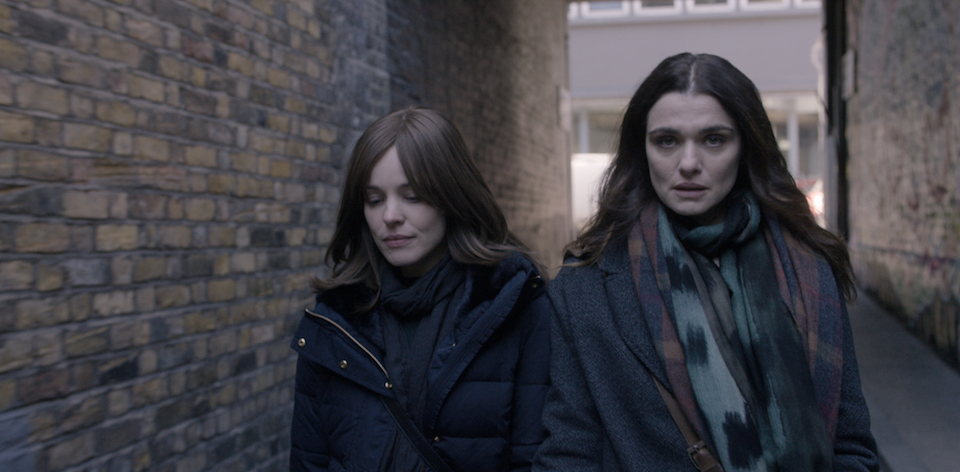Filmmaker Sebastián Lelio wowed audiences last year with A Fantastic Woman, an emotional rollercoaster about a transgender woman facing prejudice in Chile. DISOBEDIENCE looks at closeted homosexuality within the confines of orthodox Judaism, but never delivers anything more than drudging melancholy.
Based on the 2006 novel of the same name by Naomi Alderman, we are introduced to New York based photographer Ronit Krushka (Rachel Weisz). After receiving a phone call, she flies back to her native London to attend the funeral for her estranged father Rav Krushka (Anton Lesser). There she is forced to confront her feelings for her friends Dovid (Alessandro Nivola) and his wife Esti (Rachel McAdams).
As the film unfolds, it slowly emerges that Ronit left the community after her romance with Esti was discovered. So slowly, in fact, that the film appears to be standing still until the Rachels In Stereo ever so slightly start swaying to The Cure’s “Love Song”. What follows is a series of clandestine fumblings in dark corners, community shaming, and at least one hotel room for the obligatory moment of consummation. Our only point of comparison is the passionless sex that Dovid and Esti share on their scheduled Fridays.
It’s not that an exploration of same-sex relationships within religious communities isn’t overdue. Yet Lelio and screenwriter Rebecca Lenkiewicz spend more time being respectful to the ceremony of orthodoxy that they lost track of the human factor at the centre of this. That may all be an apt analogy for the role of the ‘disobedient’ within a conservative environment, but Lenkiewicz betrays her stage background with some fairly rigidly structured sequences.
Weisz and McAdams carry the emotional weight of the picture, although it’s the latter that gets the biggest arc of the piece. At the very least, by the time the film ends she is at least in an emotionally different space to where she started. Wiesz’s character is far harder to be sympathetic with, coming across as flatly as her character is drawn. Everybody else is so emotionally withdrawn it’s hard to latch onto any viewpoint. Dovid’s third act crisis of faith is real enough, it’s just that we know so little about him that it’s hard to see the forest for the Rachels.
Like some of Lelio’s previous work, it ends with a grand declaration about freedom and choice. Yet at no point does DISOBEDIENCE show any signs of having learned its own lessons. We are no closer to any understanding of a clear path for the acceptance of same-sex relationships within orthodoxy, and the film ultimately cops out on answering that. Instead, we get a pseudo-happy ending with a scene in which someone actually chases after someone heading to the airport. There’s still an important story to be told here, but this is just not it.
[stextbox id=”grey” bgcolor=”F2F2F2″ mleft=”5″ mright=”5″ image=”null”] 2018 | US | DIR: Sebastián Lelio | WRITER: Sebastián Lelio, Rebecca Lenkiewicz | CAST: Rachel Weisz, Rachel McAdams, Alessandro Nivola | DISTRIBUTOR: Roadshow Films, Sydney Film Festival (AUS) | RUNNING TIME: 114 minutes | RELEASE DATE: 14 June 2018 (SFF) [/stextbox]
2018 | US | DIR: Sebastián Lelio | WRITER: Sebastián Lelio, Rebecca Lenkiewicz | CAST: Rachel Weisz, Rachel McAdams, Alessandro Nivola | DISTRIBUTOR: Roadshow Films, Sydney Film Festival (AUS) | RUNNING TIME: 114 minutes | RELEASE DATE: 14 June 2018 (SFF) [/stextbox]





